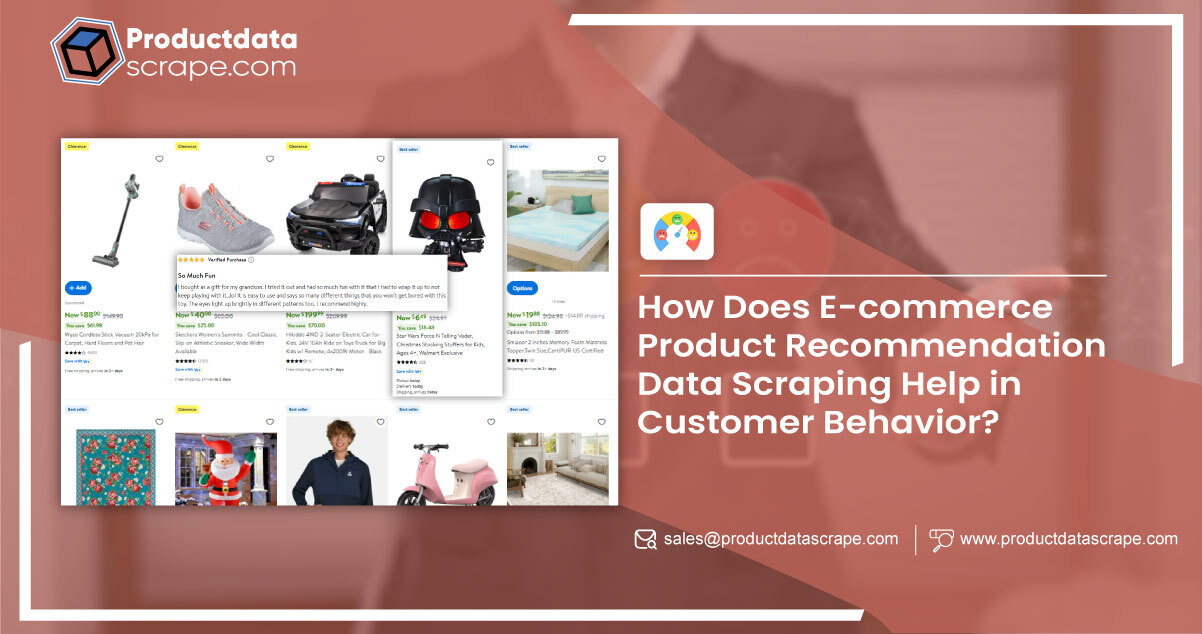
Introduction
E-commerce has revolutionized how people shop, offering unparalleled convenience and
variety. Yet, the success of any online marketplace depends on its ability to engage and retain
customers. E-commerce Product Recommendation Data Scraping is critical in extracting data
to power personalized shopping experiences tailored to individual preferences.
Product recommendations and personalized offers enhance user satisfaction, boost conversion
rates, and drive customer loyalty. By leveraging Personalized Offer Data Extraction, businesses
can collect insights on browsing behaviors, purchase patterns, and competitor pricing to deliver
relevant suggestions and competitive deals.
This approach helps online platforms stand out in the competitive e-commerce landscape. In
this article, we explore the impact and significance of personalized offer data extraction and the
ethical considerations businesses must address to responsibly harness these technologies for
enhanced customer experiences.
The Importance of Product Recommendations and Personalized Offers
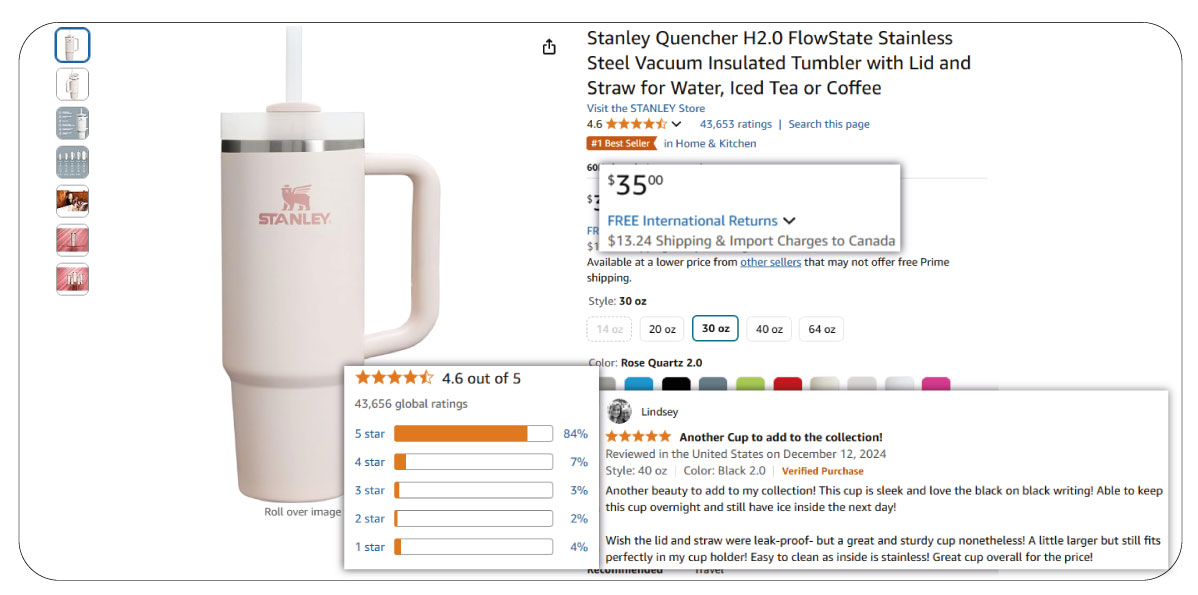
In e-commerce, personalized shopping experiences are the cornerstone of customer
satisfaction and loyalty. Shoppers today expect more than just access to a wide range of
products; they want platforms that understand their preferences and offer relevant
suggestions. Web Scraping for Personalized Deals is essential for collecting the data needed to
achieve this goal.
Product recommendations and personalized offers deliver value by:
1. Enhancing User Experience: Personalization ensures that customers spend less time searching for what they want, improving their shopping journey.
2. Boosting Conversion Rates: Recommending products that align with a customer's interests increases the likelihood of purchasing.
3. Increasing Average Order Value: Suggestions for complementary or premium items encourage customers to add more to their carts.
4. Fostering Customer Loyalty: A personalized approach makes customers feel valued, leading to repeat business.
Extract Personalized Shopping Offers to get rich, accurate, and actionable data.
Role of Data Scraping in E-commerce Personalization
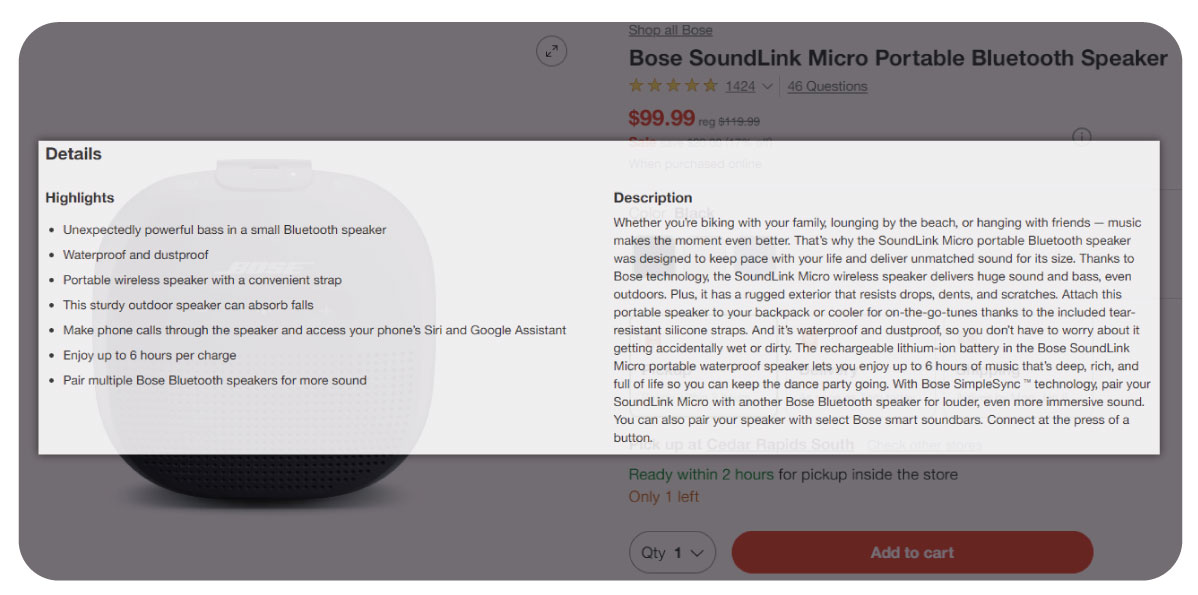
Data scraping involves collecting publicly available information from websites. In e-commerce,
it is a powerful tool for collecting valuable insights that drive personalization strategies.
Gathering Product Data
E-commerce platforms rely on comprehensive and up-to-date product catalogs to make
practical recommendations. Data scraping enables businesses to:
- Collect detailed product descriptions, images, specifications, and reviews.
- Monitor competitor pricing and availability for dynamic pricing strategies.
- Track trending items to align recommendations with current consumer interests.
By integrating this data into recommendation algorithms, platforms can suggest relevant
products that resonate with their audience.
Understanding Consumer Behavior
Analyzing customer preferences and browsing patterns is essential for creating personalized
experiences. Data scraping can help businesses gather:
- Search query trends to identify popular product categories.
- Clickstream data shows which products attract the most attention.
- Historical purchase data to predict future buying behavior.
With this information, e-commerce platforms can effectively segment their audience and tailor
product recommendations and offers to different customer personas.
Applications of Data Scraping in Recommendations and Offers
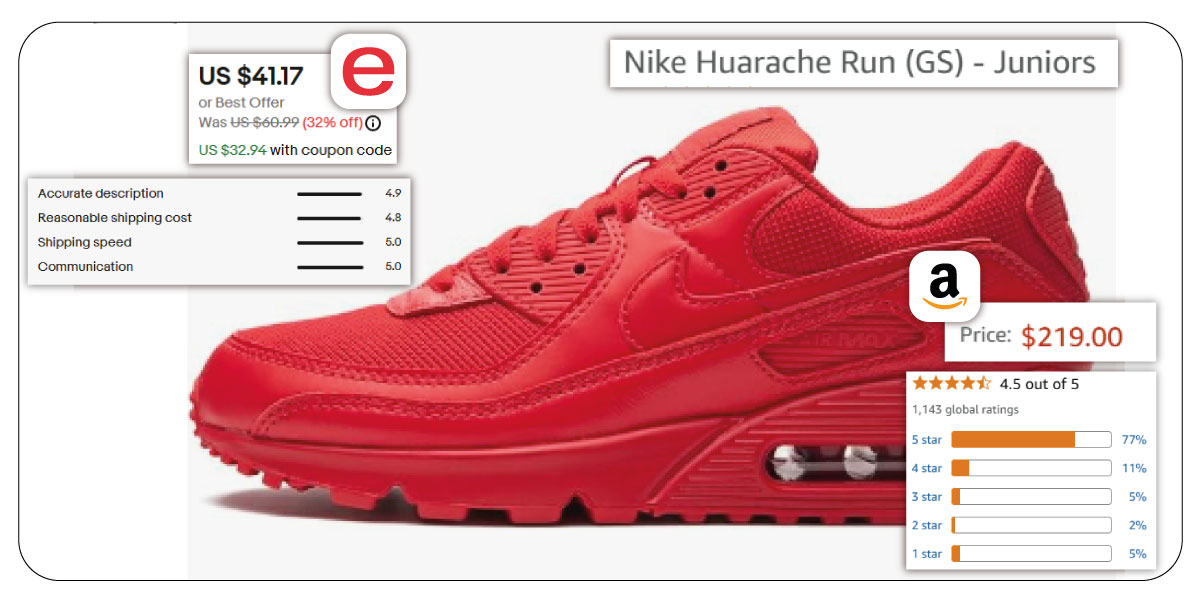
Data scraping powers various advanced features that elevate the shopping experience:
- Collaborative Filtering: By utilizing Targeted Offer Data Scraping to collect user interaction data, such as ratings and reviews, businesses can employ collaborative filtering to recommend products based on similar users' preferences. For example, if two customers have purchased similar items, the algorithm can suggest other products bought by one to the other.
- Content-Based Filtering: Scrape E-commerce Product Recommendations to collect detailed product information for content-based filtering. This method recommends items with attributes similar to those a customer has already purchased or viewed. For instance, if a customer buys a smartphone, they might receive suggestions for compatible accessories like chargers or cases.
- Hybrid Models: Combining collaborative and content-based filtering approaches requires extensive datasets gathered through E-commerce Product Suggestions Scraping. Hybrid models leverage both techniques to deliver more accurate and diverse recommendations.
- Dynamic Pricing Offers: By scraping competitor pricing data to Collect Data for E-commerce Suggestions, businesses can implement dynamic pricing strategies. These strategies ensure that personalized offers, such as discounts or bundle deals, remain competitive while maximizing profit margins.
- Location-Based Personalization: Extract E-commerce Data to get Geo-targeted offers, such as regional product availability or local trends. This ensures customers receive recommendations and deals relevant to their location.
Benefits of Data Scraping for Personalized E-commerce Experiences
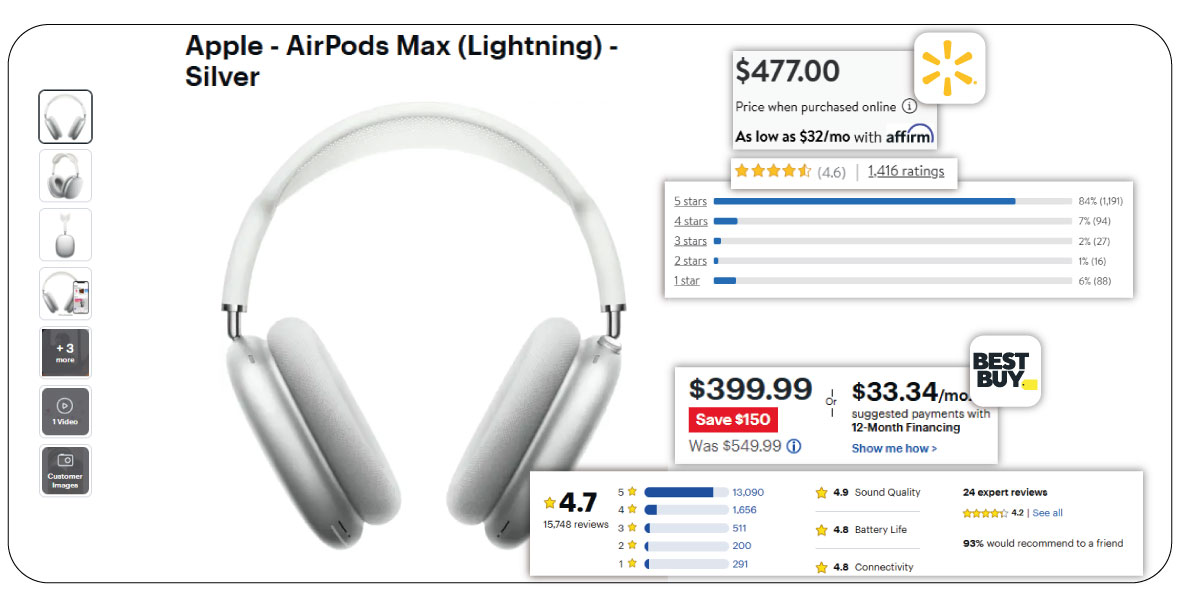
The strategic use of data scraping in e-commerce offers numerous advantages, including:
- Comprehensive Market Insights: By utilizing Web Scraping E-commerce Websites, businesses can thoroughly understand market dynamics. Scraping competitor platforms allows companies to analyze pricing strategies, popular products, and emerging trends. This information helps businesses adapt their offerings, refine marketing strategies, and stay ahead in the competitive e-commerce landscape.
- Enhanced Customer Segmentation: eCommerce Dataset Scraping enables the collection of detailed customer data, which is critical for effective audience segmentation. Businesses can categorize customers based on purchase behavior, preferences, and demographics. This precision ensures tailored product recommendations and personalized offers resonate with specific customer groups, enhancing engagement and satisfaction.
- Real-Time Updates: Regular scraping ensures that e-commerce platforms keep their recommendation engines and offer systems up-to-date. By continuously monitoring product information, inventory levels, and customer behavior, businesses can respond quickly to changes, providing accurate and relevant suggestions that improve customer experience.
- Improved ROI: Personalized recommendations and dynamic offers, powered by actionable insights from data scraping, often result in higher conversion rates. This targeted approach leads to improved customer retention, ultimately maximizing businesses' return on investment.
Ethical Considerations and Challenges
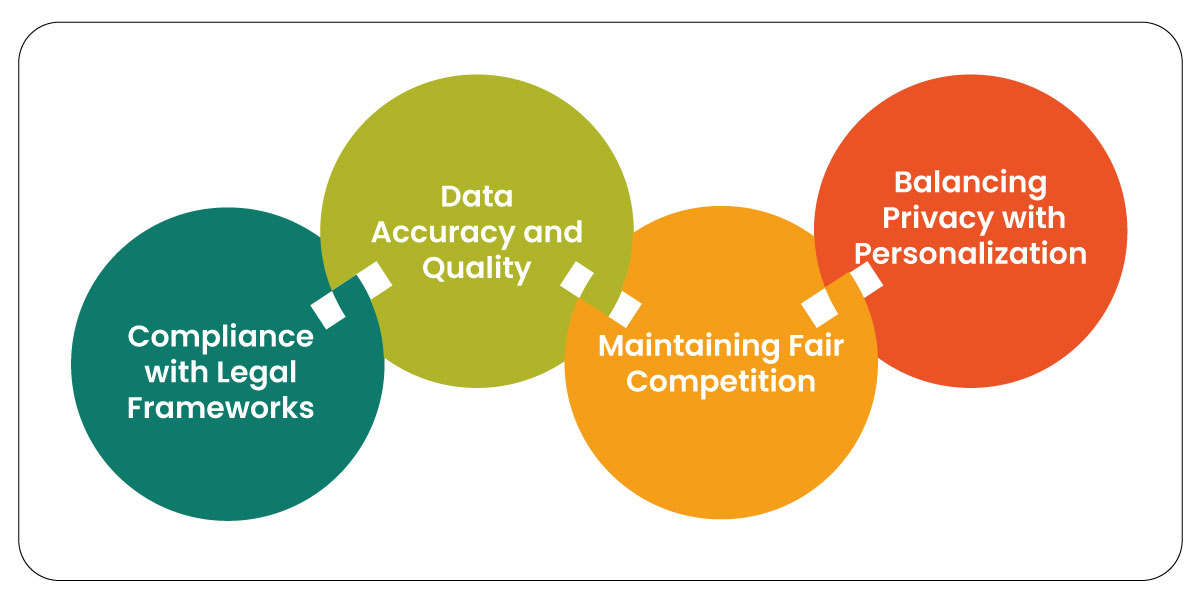
While data scraping is a valuable tool for e-commerce personalization, it comes with ethical and technical challenges that businesses must address:
- Compliance with Legal Frameworks: Data scraping must adhere to data protection laws, such as Europe's General Data Protection Regulation (GDPR). Scraping practices should focus solely on publicly available data and avoid violating terms of service agreements.
- Data Accuracy and Quality: Scraped data must be accurate and consistent to ensure effective personalization. Poor-quality data can lead to irrelevant recommendations, damaging the customer experience. Implementing robust data cleaning and validation processes is essential.
- Maintaining Fair Competition: Excessive scraping of competitor websites can disrupt operations and lead to legal disputes. Businesses should practice responsible scraping, limiting the frequency and volume of requests.
- Balancing Privacy with Personalization: While customers value personalization, they also prioritize privacy. Platforms must strike a balance by being transparent about their data usage practices and allowing customers to opt out of data collection when desired.
Future Trends in Data Scraping and Personalization
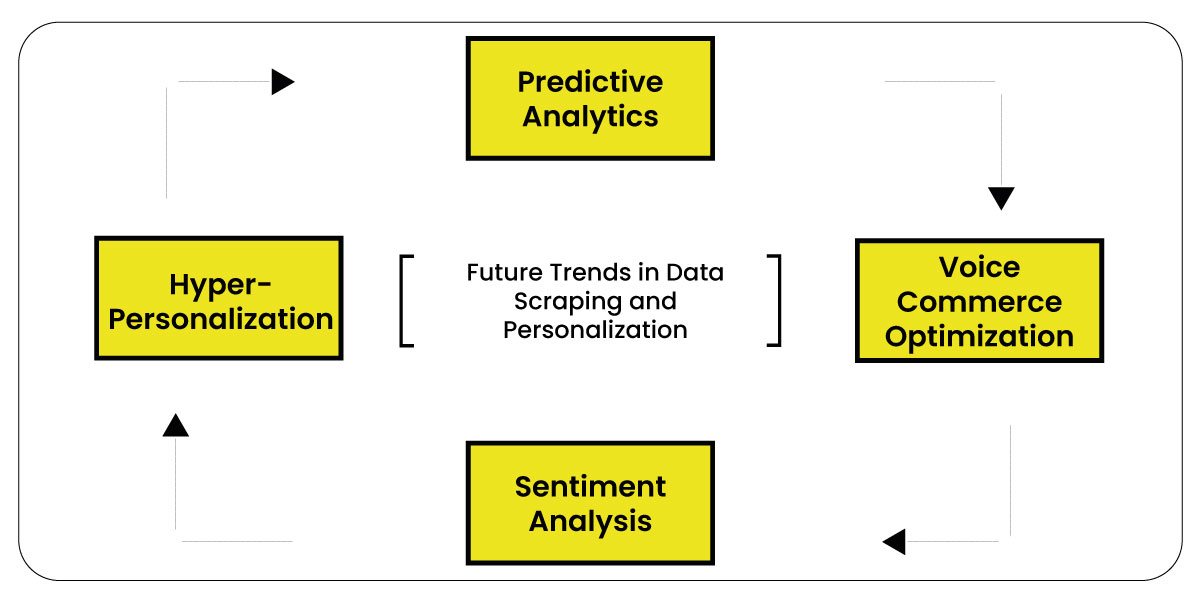
As technology advances, integrating data scraping with artificial intelligence (AI) and machine
learning (ML) is set to revolutionize e-commerce personalization. Emerging trends include:
Predictive Analytics: AI-powered predictive models use scraped data to anticipate customer needs and preferences, enabling businesses to offer proactive recommendations and deals.
Voice Commerce Optimization: With the rise of voice-activated shopping assistants, scraping voice search data can help e-commerce platforms tailor recommendations for customers who shop via smart speakers or mobile devices.
Sentiment Analysis: Scraping customer reviews and social media comments allows platforms to analyze sentiment, identifying products that elicit positive emotions. These insights can inform both recommendations and marketing strategies.
Hyper-Personalization: Advanced algorithms fed by scraped data can deliver hyper-personalized experiences, offering product suggestions and deals that align perfectly with individual customer profiles.
Conclusion
E-commerce platforms thrive on their ability to provide a seamless and personalized shopping experience, and data scraping has become an indispensable tool in achieving this. By enabling businesses to gather rich datasets about products, customer preferences, and market trends, scraping fuels the algorithms behind practical product recommendations and personalized offers. This data also supports robust Pricing Strategies, ensuring competitive and dynamic pricing that aligns with market demands.
However, companies must approach data scraping responsibly, respecting legal and ethical boundaries. Techniques like Price Monitoring allow businesses to track competitor prices and market fluctuations, further enhancing their ability to offer relevant deals and maintain profitability.
At Product Data Scrape, we strongly emphasize ethical practices across all our services, including Competitor Price Monitoring and Mobile App Data Scraping. Our commitment to transparency and integrity is at the heart of everything we do. With a global presence and a focus on personalized solutions, we aim to exceed client expectations and drive success in data analytics. Our dedication to ethical principles ensures that our operations are both responsible and effective.







































.webp)






